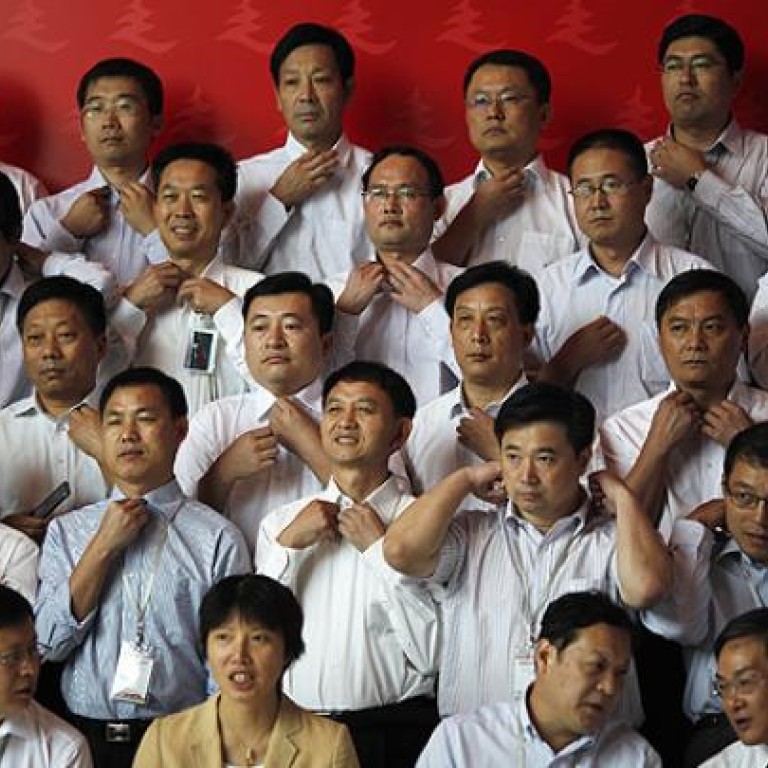
Guangdong's asset declaration scheme falls short, critics say
Guangdong's pilot programme to unveil salaries of officials does not include privately gained wealth or account for their families' incomes
Guangdong's much anticipated pilot programme on the declaration of officials' personal assets has been strongly criticised for its extensive restrictions on information disclosed to the public.
The government in Taiping township in Shixing county, Shaoguan, disclosed the salary and perks of 13 officials in its government headquarters, the reported on Monday.
It said the town's party chief, Zheng Weiming, was paid 2,100 yuan (HK$2,586) in basic salary a month, plus a 620 yuan allowance and 360 yuan for mobile phone expenses. But income from other sources and the assets of officials' family members were not disclosed.
Guangdong had earlier chosen three locations – Zhuhai's Hengqin New Area, Guangzhou's Nansha New Area and Shixing county – for testing an anti-graft scheme requiring senior officials to declare their personal and family assets.
It sounds like the officials are only disclosing the information to complete government procedures rather than doing it sincerely
The report, citing a source close to the Communist Party's discipline watchdog in Guangdong, said the declarations would be used for internal reference, and that the authorities might disclose some of the information to the public.
Many internet users found the level of disclosure insufficient and unconvincing.
"I just wonder if the figure is fake. Even the chief in my poverty-stricken hometown earns more than that," one microblogger wrote.
Another said: "I am very sure that the figure disclosed is just a tip of their actual income."
And another asked: "Is it possible for these officials to fully disclose their assets?"
With corruption widespread and rampant, there have been mounting calls for officials to disclose their personal and family assets.
A Shenzhen village official, Zhou Weisi, was placed under investigation in November amid allegations he owned more than 80 properties and 20 cars.
But some politicians have opposed such calls. Ye Pengzhi, a deputy to the Guangdong People's Congress, said officials were not slaves to the people and deserved privacy.
Professor Wang Quanjie , from Yantai University, who signed an open letter calling on party cadres to publicly disclose their family assets, said the limited information from Taiping failed to satisfy the public.
"It sounds like the officials are only disclosing the information to complete government procedures rather than doing it sincerely," he said. "Disclosing only the salary and the perks is not useful to the public, who can already get such information."
Wang said officials should disclose the income they earned through stock and financial investments, and the assets of their spouses, children and parents.
Dr Peng Peng, a researcher at the Guangzhou Academy of Social Sciences, said he expected strong resistance if officials were asked to provide more information.
"There are also concerns on the use of information disclosed through the internal reference mechanism," he said. "Will officials who release such internal information to the public or use such information to report the wrongdoings of their counterparts be punished?"

